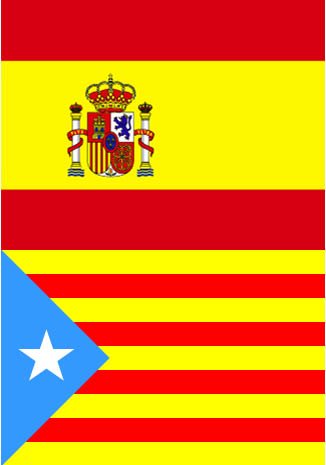In Spain, a debate has been raging that extends beyond the subject to the language/s being used to propel it. The subject is the language/s of education in Catalonia, the autonomous region of Spain whose official languages include both Catalan and Spanish.

The factions are not as distinct as the languages, and the genesis of the debate is lengthy. Although it has undoubtedly intensified in recent years, its roots go back to the late 70s, when Catalan was first introduced in the elementary and high schools in non-intensive/-exclusive way. Since then, Catalan’s influence in education continued to grow, culminating in its 1992 ratification as the official language of instruction in all non-university schools and institutes in Catalonia. The standard was reinforced by the Linguistic Policy Law of 1998 and again in 2006. Soon after, a small group of Catalonians began to criticize the lack of Spanish in education, catalyzing several efforts (of varying degrees of success) to further include the language.
Although Spaniards are divided on the issue, with monolingual education—whether in Catalan or Spanish—being supported by some, and bilingual education by others, there does seem to be an aspect on which the factions almost unanimously agree: that the issue has become (or perhaps always was) excessively political, and that those who actually implement the policies, who educate, have had little say in the formation of such policies.
The voices of these individuals are beginning to emerge in various forums, but the debate continues still, a polemic most affecting those who have even smaller say than educators—the students themselves.
Particularities aside, the situation is representative of an important problem that all education systems, regardless of the region, state, or nation they correspond to, must face: that is, determining the best methodology with respect to language education (i.e. its policies and goals), and who should be made responsible for implementing it.
Private education might be considered a preemptory avoidance of the problem, although with its high cost and selectivity it may also be said to simply rearrange the imposition of specific, exclusive standards. The fact that it is optional seems to be its only irrefutable point of exoneration.
However, that is assuming the students and others generally not involved in the formation of political and educational policy best know how to shape the educational system and, by extent, the future linguistic makeup of a place. Most would grant that the majority of educators and politicians wielding power and influence likely wield knowledge and experience as well.
So, what’s the best way to handle the issue—in Catalonia, specifically, or more generally? In another way: whose influence is best, most valid, true, etc., and how should it be promoted above the others?







